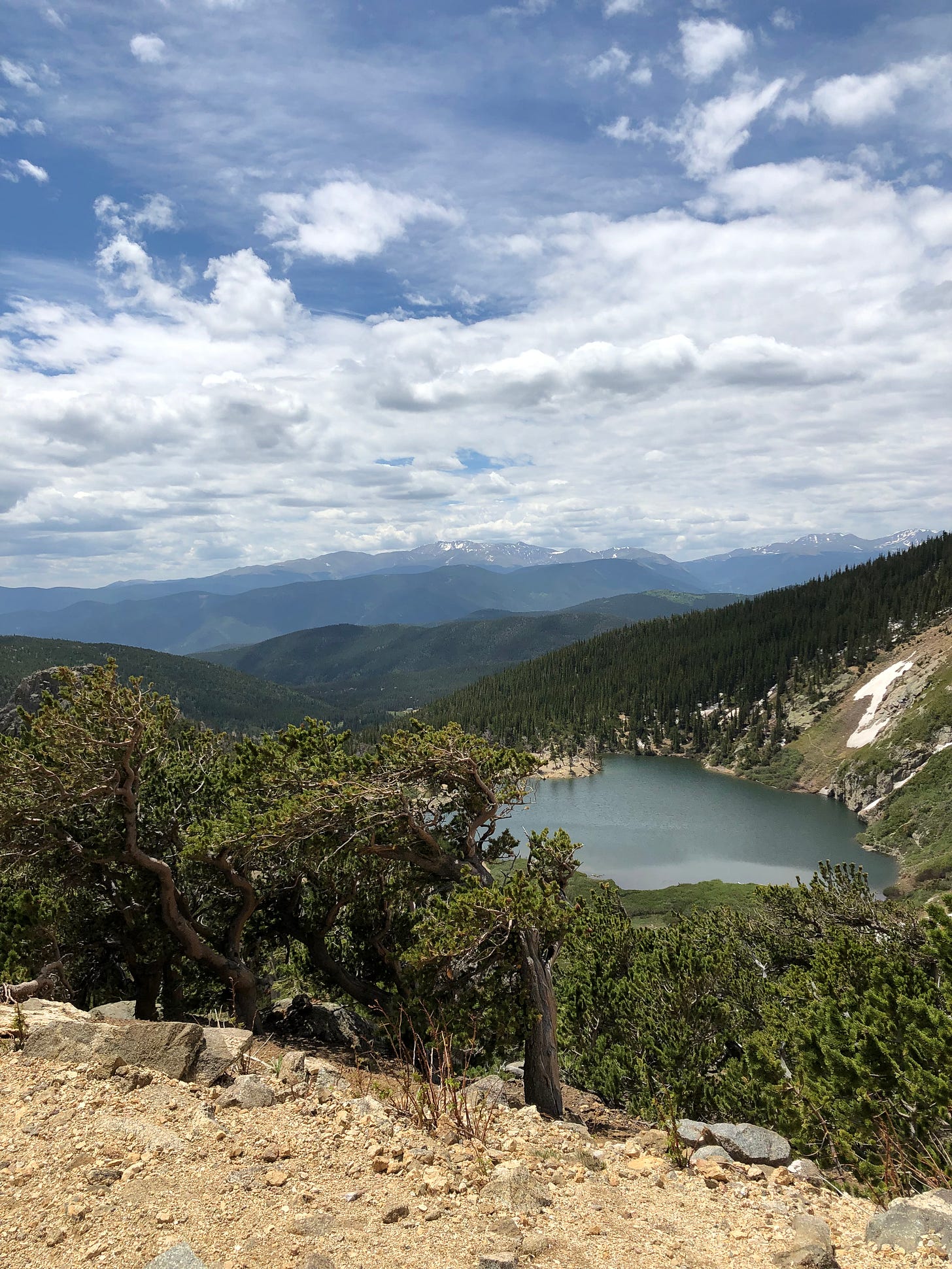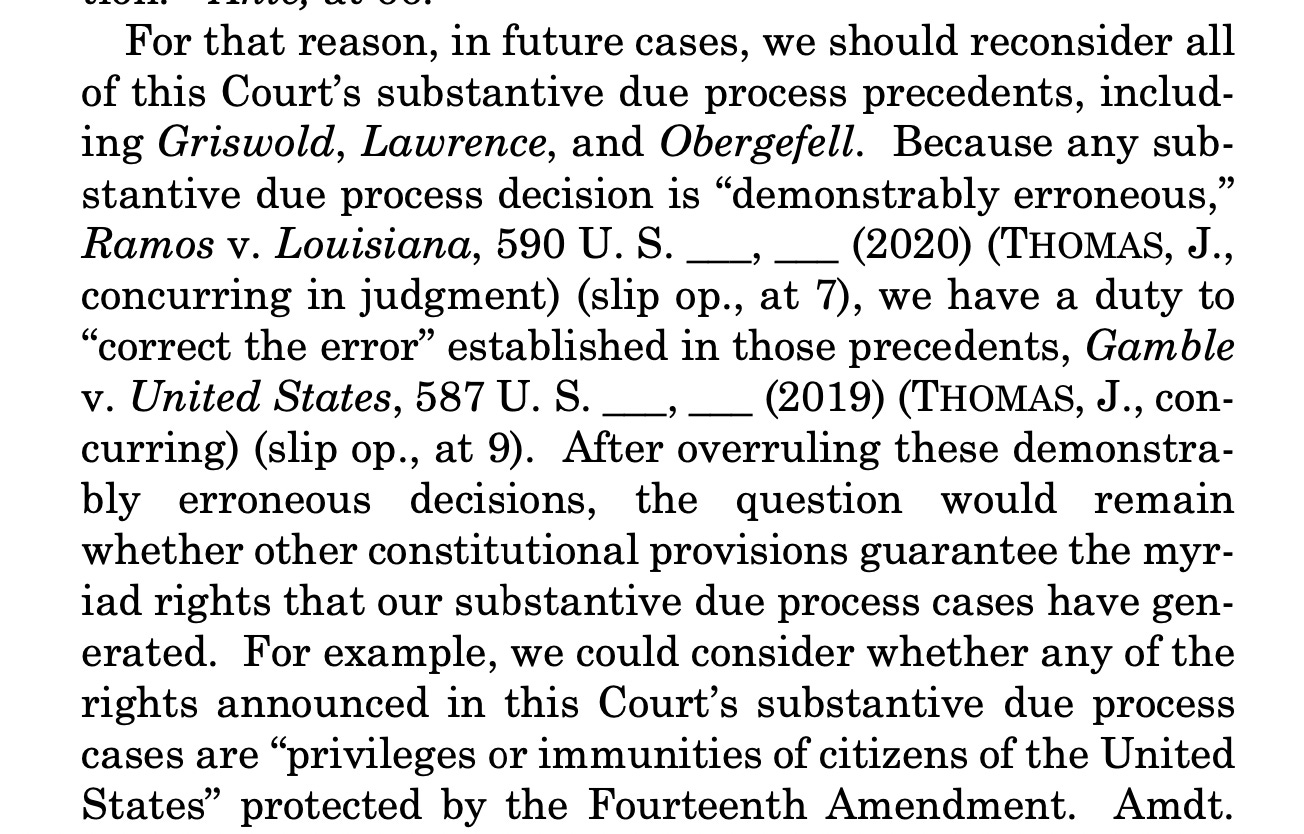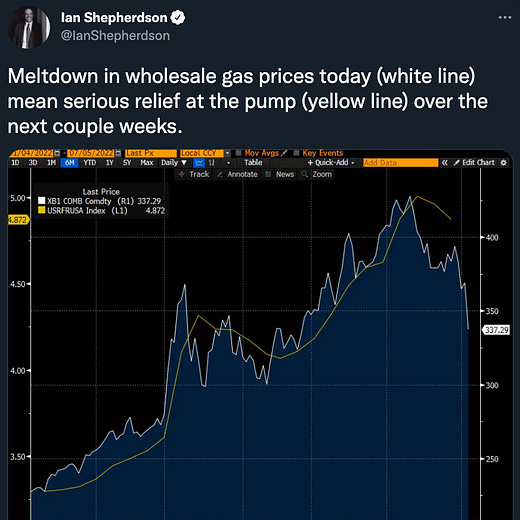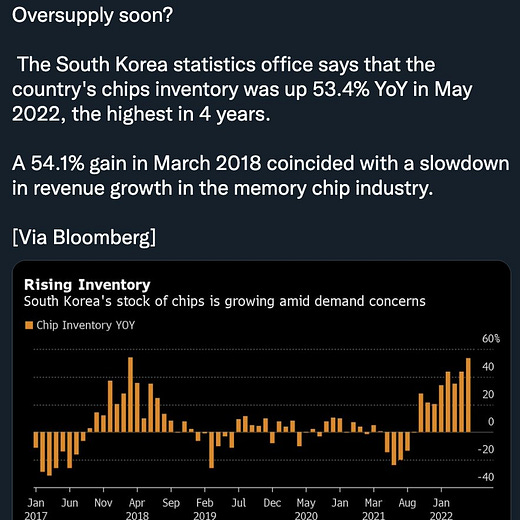Alito's Decision is Almost as Problematic as Roe
...almost.
Happy Friday my beautiful babies. I will apologize in advance for a shorter Jackal (a Shackal), because we have friends in town and also sold our house this week (!), which means we have to go find a place to live. No big deal. But I absolutely wanted to take this time to cover:
Alito’s decision in Dobbs.
Two other cases where liberals on the Court were wrong: On “school” prayer and public funding of religious schools.
Our super weird, really strong economy that somehow feels crappy.
It has somewhat faded from the news cycle a little bit, but Justice Alito’s decision in Dobbs is obviously a historic bombshell moment. I think immediately following the decision, there was lots of worry about what the Court would do next in terms of civil rights, and if other ones (contraception, gay marriage, etc.) were under threat. This is because of a line in Justice Thomas’s concurrence:
The three cases mentioned by Thomas: Griswold, Lawrence, and Obergefell, all protect the right to contraception, private sexual relations between adults (striking down Texas’s sodomy law), and gay marriage, respectively. People read his statement and were understandably alarmed.
This is where I have to defend Clarence Thomas a little bit: He is actually the only one being consistent. The fundamental problem with Alito’s decision is that he finds that Roe and Casey - along with the right to an abortion at large - are not actually valid under the due process clause of the 14th Amendment. The problem with that reasoning is that the rights that were found by the Court in Roe and Casey were first identified under Griswold’s “right to privacy.” Basically, if there really isn’t a right to an abortion, there really isn’t a right to privacy, and then there really isn’t a right to gay marriage or private sexual relations.
Alito tries to thread the needle and says that abortion is unique. He says that the right to an abortion is different from the other rights found in the substantive due process cases (Griswold, Lawrence, etc.) because it is not “deeply rooted” in American law or history. That is flimsy reasoning, because any reading of American history will tell you that it’s not at all clear that the right to private monkey-bumping is protected by the Constitution. For years states passed laws banning things like oral sex (technically still illegal in 18 States, if Lawrence is overturned) and any sexual position other than missionary (this is seriously a law in Washington, D.C., of all places).
The more I read Alito’s decision and think about it, the more problematic it becomes. As a whole, it doesn’t really make sense, which means it is ripe for being overturned by a liberal Court. The reason he stopped short of just overturning the other substantive due process cases is pretty obvious: No other justice signed onto Thomas’s concurrence. After Dobbs was argued, there were rumors that Chief Justice John Roberts was on a lobbying campaign to pull people away from overturning Roe, and that he was making headway with Justices Amy Coney Barrett and Brett Kavanaugh. You can sort of see evidence for that in Alito’s decision: One of the changes from his draft to the final copy is him re-emphasizing that the decision in Dobbs did not touch gay marriage or contraception. He supposedly put that in because Kavanaugh and Barrett demanded it be crystal clear if they were going to sign on to the majority.
In short, the Court is playing politics and knows that overturning really popular measures would be horrible for the Court’s reputation. The Court has always been political, but it’s nice that it’s sort of out in the open now for everyone to see.
So, what happens next?
I think the first thing to note is that the Court’s decision is seismic and has totally upended the elections in November.
It remains to be seen whether or not the Dem enthusiasm holds, but right now FiveThirtyEight has the Senate in basically a toss-up, which was unthinkable a few months ago. And all of this comes with the caveat that polls are SUS and we do not trust them, but even Donald Trump seems to realize that overturning Roe could be bad politics for the GOP.
What does happen now is that there will be a major debate about abortion going on at the local level. There will be battles between local prosecutors in, say, Houston, as they resist directives from Texas State officials to prosecute doctors who perform abortions. Prepare to see more ballot initiatives in States that protect the right to abortion. In other words, if anyone thinks overturning Roe ended the debate about abortion in this country, they are in for a rude awakening. The debate is actually just getting started.
The Court also issued decisions on two other arguments from the Fall term: One involving public prayer (Kennedy) and another involving public funding of religious schools (Carson). Just a quick note on these cases:
Carson involved school funding in Maine. Basically, if you lived in a school district in Maine that did not contain a public school, you could apply for funding from the State to attend a private school. Maine barred religious schools from that funding, and the Court struck that down as a violation of the First Amendment. There should have been no dissents in this case. Simple enough answer: Notre Dame is eligible for Pell Grants. Throughout American history, most universities and colleges that qualified for public funding were religious in nature. The separation of church and State is a real thing in the Constitution, and it is good, but this is not what was intended by it.
Similarly, Kennedy is a case that should have had zero dissents. Instead, we got a particularly disingenuous dissent from Justice Sonia Sotomayor, who used pictures of the plaintiff praying on a football field with his team, only to find out that the pictures were from before his behavior changed. Akiva Cohen summarizes it nicely here:
Well, we got a jobs report today and, spoiler, it was really good. Ultimately, anyone telling you that they know what is going to happen with the economy is full of it. If the U.S. is creating 342K jobs a month, it is unlikely that a recession is coming. But are things really weird right now and could one show up anyway? Yep. But there is some good news:
Gas prices are finally coming down. We are finally seeing some relief at the pump, and oil is falling off a cliff. That isn’t the only factor behind inflation, but cheaper gas will help.
Prices for almost everything else are coming down.
Maybe we will be OK after all? Who knows, but we have literally never been in this situation before: Emerging from a global pandemic in a modern, globalized economy, where the Internet is actually a thing. Pretty wild.
I’m back with a longer Jackal (a Lackal) next week! See you all then.












